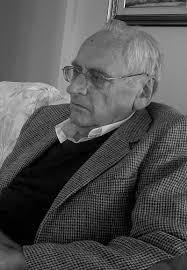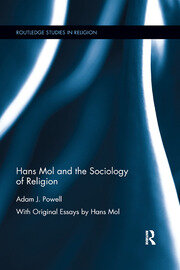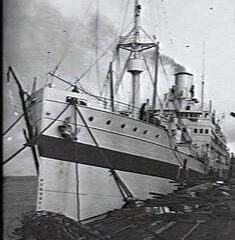Biography

Johannis Jacob “Hans” Mol, (14 February 1922 – 26 November 2017) a notable sociologist of religion, was born in Rozenburg. His early academic pursuits at the University of Amsterdam were disrupted by World War II when he refused to pledge allegiance to the Nazi party. Consequently, he was forced into labor and later imprisoned by the Gestapo. After his release in 1945, Mol emigrated to Australia in 1948, arriving here on the Steam Ship Volendam. Here he resumed his theological studies, eventually becoming ordained in the Presbyterian Church in 1952. He was a Chaplain to immigrants in Bonegilla from 1952 till 1954.
Mol married Ruth McIntyre in 1953 and moved to the United States to further his education. He completed his Bachelor of Divinity at Union Theological Seminary, a Master’s in Christian Ethics at both Union and Columbia University, and earned a PhD in Sociology at Columbia University under Robert K. Merton in 1960.
Academic and Professional Contributions
Mol’s academic career spanned several countries and institutions. He taught at Canterbury University in New Zealand, Australian National University, and McMaster University in Canada, where he retired as Professor Emeritus in 1987. Additionally, he briefly taught at the University of California, Santa Barbara, in 1969. He was actively involved in various academic organisations, serving as Secretary and President of the International Sociological Association’s Sociology of Religion Research Committee.
Key Publications and Theoretical Contributions

Mol authored numerous influential works in the sociology of religion, including “Churches and Immigrants” (1961), “Race and Religion in New Zealand” (1966), “Identity and the Sacred” (1976), and “The Firm and the Formless” (1982). His identity theory of religion, primarily outlined in “Identity and the Sacred,” is a cornerstone of his scholarly legacy.
Mol’s theory emphasises that religion serves to sacralise identity, providing stability in a chaotic world. He viewed identity as a fundamental human need and religion as a balancing force between the integrating and differentiating aspects of social life. This theory incorporates four mechanisms: objectification, commitment, ritual, and myth, which collectively maintain and sacralise identity.
Mol’s work challenged the secularisation thesis prevalent in mid-20th-century sociology, arguing that religion’s role in protecting and sacralising identity ensures its ongoing relevance. His theory is notable for avoiding strict classification as either substantive or functionalist, offering a sophisticated understanding of religion’s enduring presence in modern society.
Legacy
Hans Mol is recognised as a significant figure in the sociology of religion, with his work being featured in key publications like the “Encyclopaedia of Religion and Society” and “Sociology of Religion: An Historical Introduction.” His contributions continue to influence contemporary discourse on the relationship between religion and identity, highlighting the dynamic and adaptable nature of religious practice in maintaining social and personal stability. Mol’s enduring impact is reflected in his recognition alongside prominent sociologists like Max Weber, Ernst Troeltsch, Talcott Parsons, and Peter Berger.
See also:
Sacred Selves, Sacred Settings: Reflecting Hans Mol, Douglas J. Davies and Adam J. Powell


